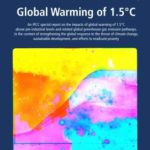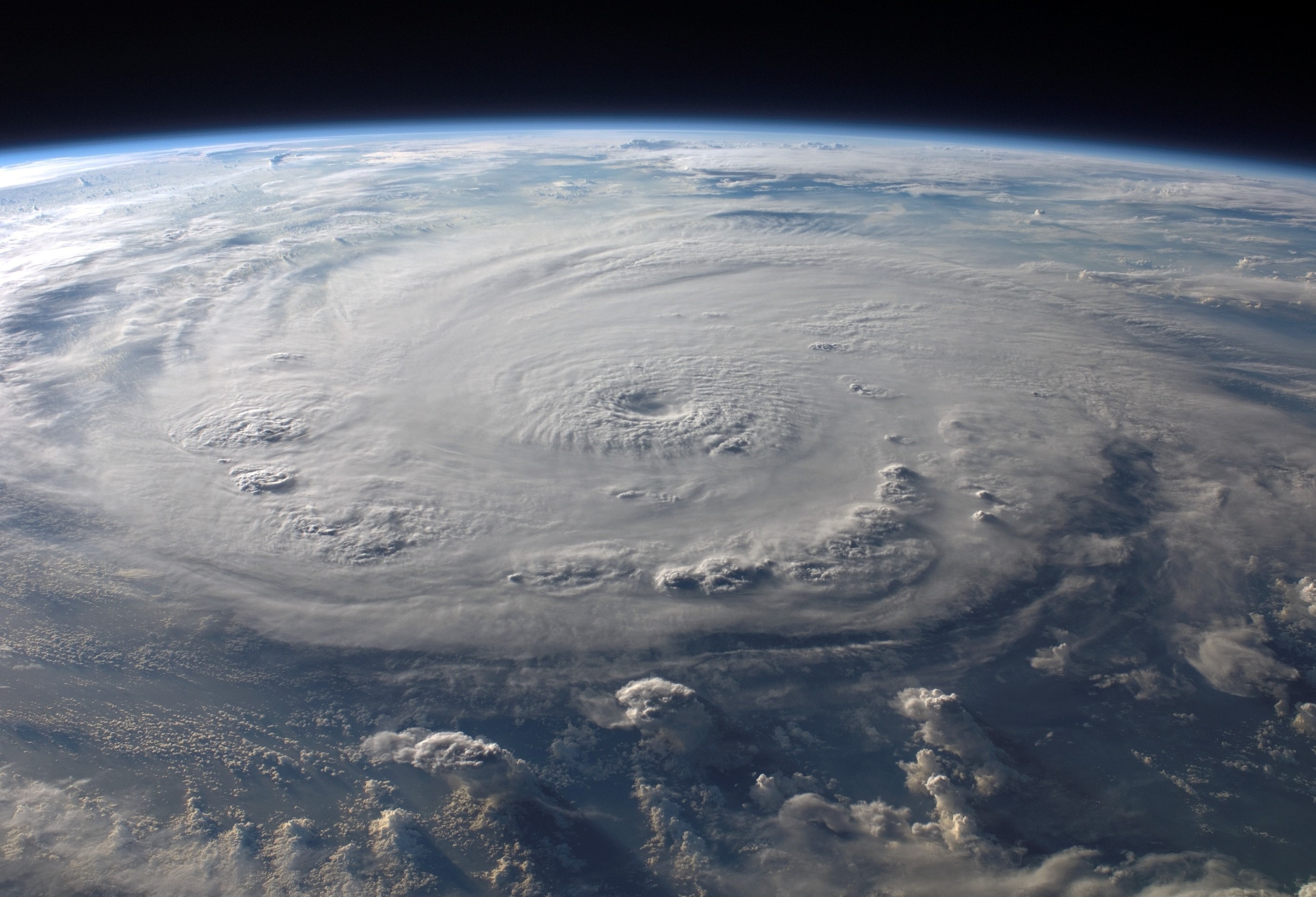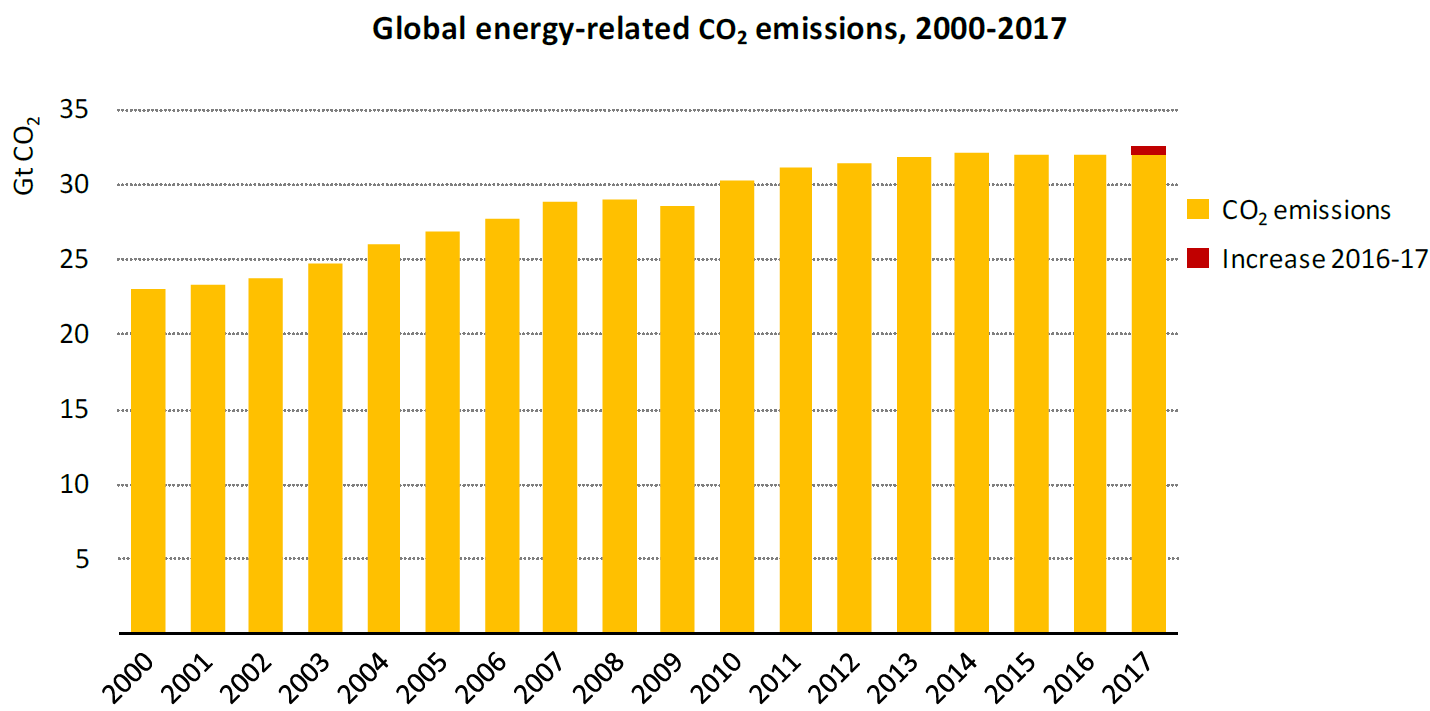 The top line is that the global environmental damage done is already irreversible. If humanity would stop emitting 100% the gases it is emitting today February 2019, the seas will still continue to rise until further than 2100.
The top line is that the global environmental damage done is already irreversible. If humanity would stop emitting 100% the gases it is emitting today February 2019, the seas will still continue to rise until further than 2100.
It is not about if there are going to be changes by global warming, this is about how drastic and fast these changes are coming; and how that impact translates for humanity. How big is the bill.
The Intergovernmental Panel on Climate Change (IPCC) Special Report on Global Warming of 1.5 ºC, has already been released.
The authors studied over 6.000 different sources. There where over 42.000 expert and government review comments. The report itself is prepared by 91 authors, and 133 contributing authors.

The IPCC “is the United Nations body for assessing the science related to climate change“, since 1988, and currently has 195 members.
The Summary for Policy Makers-SDM reads: “Human activities are estimated to have caused approximately 1.0°C of global warming above pre-industrial levels, with a likely range of 0.8°C to 1.2°C. Global warming is likely to reach 1.5°C between 2030 and 2052 if it continues to increase at the current rate.”
Not only GreenHouse Gases (GHG) levels are already too high, but emission levels are still rising. Every year humanity is emitting more GHG than previous years. It’s like the world still doesn’t see any problem.

This is why #GretaThunberg is on #FridayStrikes, but that’s material of another post.
Considering only the cumulative GHG already emitted, the temperature of the planet will keep rising for several decades. That’s why the report urges humanity to reach the “Net zero emissions” level ASAP. “Net zero emissions are achieved when emissions of greenhouse gases to the atmosphere are balanced by anthropogenic removals.” The problem is emissions are in fact rising.
Here are a few of the statements of the report: “A slower rate of sea level rise enables greater opportunities for adaptation in the human and ecological systems (…)”.
“A reduction of 0.1 m in global sea level rise (with 1,5°C instead of 2°C) implies that up to 10 million fewer people would be exposed to related risks, based on population in the year 2010 (…)” This is bigger than the refugee crisis.
The area at risk of undergoing an ecosystem transformation is projected approximately 50% lower at 1.5°C compared to 2°C.
“1.5°C is projected to destroy 90% of what remains of world coral reefs. 2°C is expected to wipe them out entirely”; says Second Thought [link]. “At 1.5°C we can expect to see a completely ice free arctic summer once every century, at 2°C once every decade.” Is alarming.
A future limiting global warming to 1.5°C will “require rapid and far-reaching transitions in energy, land, urban and infrastructure (including transport and buildings), and industrial systems”.
And a few statistics, some really amazing. For example a 100 companies are responsible for 77% of GreenHouse Gases (GHG) emission:
China Coal for 14,3%,
4 companies under 4,5%,
13 under 1,9%,
The rest under 0,9%.
This is is eye- opening. But not surprisingly the words coal, oil, petro, get repeated on the list…
Now, this is not about a few bugs going extinct;
- it’s about severe droughts,
- extreme temperatures,
- agricultural collapse,
- increasingly extreme weather events,
- and of course the economical consequences for everybody. In 2018 the costs only from natural disasters are estimated to be $165Bn.
One fisheries model in the study projects a decrease in global annual catch from marine fisheries of 1.5 million tons at 1.5°C. And by 3 million tons at 2°. This means a lot considering FAO’s report that fisheries account for almost almost 17 percent of world’s protein intake. They estimate that “fisheries and aquaculture support the livelihoods of 10–12% of the world’s population.” That is 10-12% of 7,7 billion people, according to the latest estimates.
In short: The damage is done, but we can dramatically reduce the pain if we somehow limit the change from +2°C (above pre- industrial levels), to 1,5°C. This would require extreme changes in society.
What can be done with such pessimistic forecast? Second Thought [Link?] is pretty clear: “We would need to transition to 100% renewable energy, stop using fossil fuels for transportation (…cars, ships, trains and airplanes), stop cutting down trees and start planting them by the thousands, stop factory farming and at least drastically reduce worlds meat intake“.
“All pathways that limit global warming to 1.5°C with limited or no overshoot project the use of Carbon Dioxide Removal (CDR) on the order of 100–1000 GtCO2 over the 21st century“.
See the Summary for Policy Makers-SPM for the complete bottom line.
The scales are huge. It requires us all. Stop using fossil fuels. Study ways you can contribute to CDR. Raise awareness. But most important, I’ll make mine the words of Anand Mahindra at 2019 World Economic Forum: “This is the biggest business opportunity of the next two decades.”
Links:
- Watch the video by Second Thought “Why is the IPCC report so scary“.
- You can find the whole IPCC Report .
- Read the Summary for Policy Makers-SPM.
- Highly recommended Summary for teachers.
- More details about the report and the work behind it, check “Understanding the IPCC Special Report on 1.5°C“.


I like the articles, keep them coming…. BUT: According to the Food and Agriculture Organization of the United Nations (FAO) agriculture is responsible for 18% of the total release of greenhouse gases world-wide (this is more than the whole transportation sector). Cattle-breeding is taking a major factor for these greenhouse gas emissions according to FAO. Says Henning Steinfeld, Chief of FAO’s Livestock Information and Policy Branch and senior author of the report: “Livestock are one of the most significant contributors to today’s most serious environmental problems. Urgent action is required to remedy the situation.”